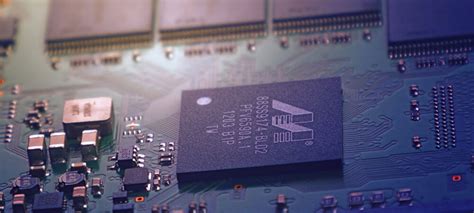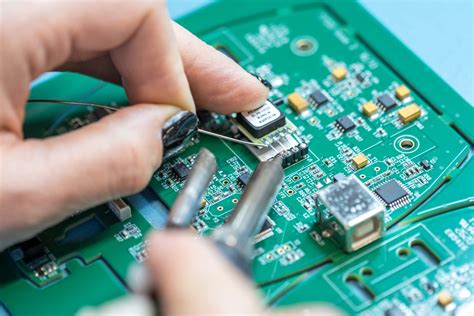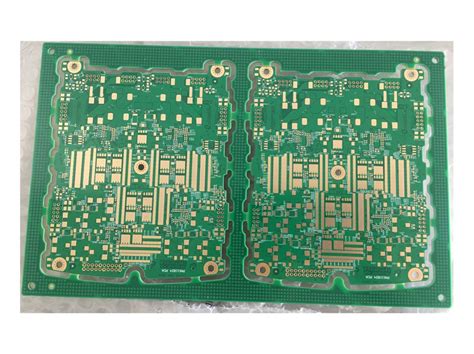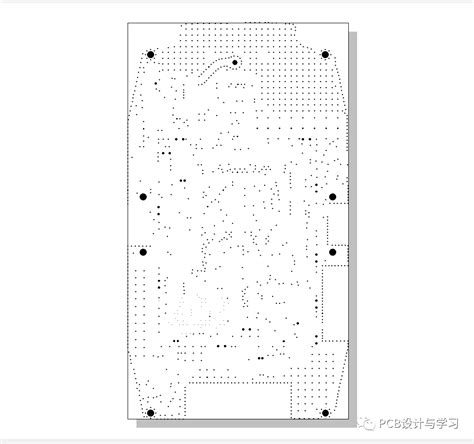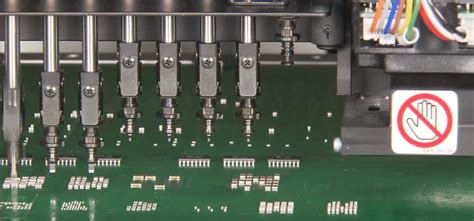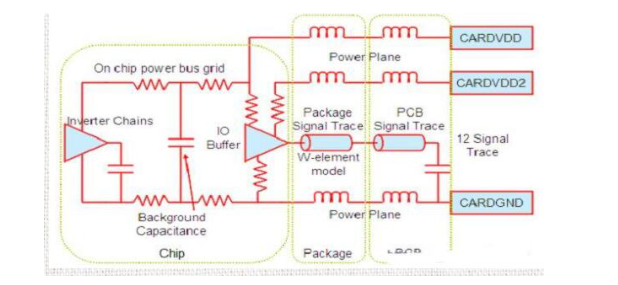Driving Innovation: A Deep Dive into Leading Automotive PCB Manufacturers
Key Takeaways
The automotive PCB landscape is undergoing significant transformation, driven by evolving technology and the increasing complexity of vehicle systems. One of the key insights is the growing importance of PCB assembly (often referred to as PCBA) in enhancing efficiency and performance within the automotive sector. Manufacturers are focusing on innovative designs and materials that not only increase functionality but also optimize space—a crucial factor in modern vehicle engineering. These materials, ranging from flexible circuits to high-frequency laminates, are essential for integrating advanced electronic features like driver assistance systems and infotainment technologies.
Furthermore, as vehicles become more connected, the challenges related to reliability and durability have intensified. Leading automotive PCB manufacturers are implementing advanced manufacturing techniques that prioritize precision and speed to ensure that every layer of the board meets rigorous safety standards. The importance of sustainability cannot be overlooked either; manufacturers are actively seeking solutions that reduce waste and energy consumption throughout the PCBA process. By navigating these complexities, they position themselves not just as suppliers but as pivotal partners in driving technological advancements within the automotive electronics sphere, all while maintaining focus on meeting regulatory standards for performance and safety.
The Evolution of Automotive PCBs: Transforming Vehicle Design
The landscape of automotive printed circuit boards (PCBs) has undergone a remarkable transformation over the years, significantly influencing the design and functionality of modern vehicles. Initially, the role of pcb assembly was limited to basic electronic functions, but advancements in technology have propelled these components to pivotal positions within vehicles. Today’s automotive PCBs are integral to innovations such as advanced driver-assistance systems (ADAS), infotainment systems, and electric vehicle power management. The shift from traditional designs to more complex PCB layouts allows for greater integration of features, promoting not only enhanced performance but also improved safety standards. For instance, the use of multi-layer pcba structures allows manufacturers to incorporate more components into a smaller footprint, optimizing space within vehicle designs while maintaining functionality. Furthermore, the development of flexible PCBs enables more versatile configurations that can adapt to various design parameters, ensuring that manufacturers can meet diverse consumer needs without compromising on performance or reliability. As these advancements continue to emerge in a competitive market, the evolution of automotive PCBs remains at the forefront of driving innovation in vehicle technology.
Key Players in the Automotive PCB Industry: An Overview
The automotive PCB industry is a dynamic arena characterized by numerous key players who are shaping the future of vehicle technology. Companies dedicated to PCB assembly and PCBA processes are at the forefront, integrating sophisticated electronic systems into modern vehicles. Major manufacturers such as NXP Semiconductors, Texas Instruments, and Infineon Technologies stand out for their innovative approaches, focusing on high-performance materials that enhance durability and functionality.
With the increasing complexity of automotive electronics, these manufacturers have adopted advanced strategies in their production processes. They utilize cutting-edge techniques to optimize circuit design, improve efficiency, and ensure reliable performance under rigorous conditions. Notably, robust connections achieved through precise PCBA have become essential for system integration in applications like advanced driver-assistance systems (ADAS) and electric vehicles (EVs).
Table 1 below illustrates some leading companies and their contributions to the automotive PCB market:
| Company | Specialization | Notable Contributions |
|---|---|---|
| NXP Semiconductors | Automotive microcontrollers | Development of secure vehicle chips |
| Texas Instruments | Analog systems and signal processing | High-efficiency power management systems |
| Infineon Technologies | Power semiconductors | Industry-leading solutions for EVs |
As these industry leaders continue to innovate, they face challenges such as rapidly changing consumer demands and stringent regulatory requirements. However, their commitment to enhancing vehicle safety through reliable board design and exceptional manufacturing quality remains unwavering. The advances made in automotive PCBs are not only crucial for performance but are also central to achieving greener manufacturing processes aimed at reducing environmental impact.
Innovative Materials: Advancements in PCB Manufacturing
The automotive industry is experiencing unprecedented advancements in printed circuit board (PCB) manufacturing, largely driven by the need for enhanced performance, reliability, and durability. Manufacturers are increasingly innovating with materials that not only meet stringent quality standards but also facilitate more efficient pcb assembly processes. For instance, the use of high-frequency laminates and flexible substrates enables the design of compact and lightweight electronic components vital for modern vehicles. These materials offer superior thermal conductivity and resistance to harsh automotive environments, significantly improving the longevity and efficiency of electrical systems found within vehicles.
Moreover, manufacturers are tapping into eco-friendly materials to address sustainability concerns associated with traditional PCBA practices. By focusing on recyclable substrates and low-impact manufacturing methods, they are not just enhancing vehicle performance but also contributing to a more sustainable future.
“Embracing innovative materials is key to overcoming the challenges that arise from evolving automotive technology,” an industry expert notes. Investing in advanced materials is crucial for companies aiming to stay competitive in a fast-changing market.
As these trends continue to evolve, it becomes critical for manufacturers to balance innovation with practicality, ensuring that new material choices do not compromise safety or introduce new challenges into the PCB manufacturing landscape.
Advanced Manufacturing Techniques: Driving Efficiency and Performance
The automotive industry is witnessing a significant transformation thanks to advanced manufacturing techniques that enhance both efficiency and performance in PCB assembly. As vehicles become increasingly reliant on sophisticated electronics, the role of Printed Circuit Board Assembly (PCBA) is crucial. Manufacturers are adopting innovative processes that not only streamline production but also ensure the reliability of automotive PCBs. Techniques such as multi-layer stacking, automated placement, and high-density interconnects enable manufacturers to create more complex designs with smaller footprints, which is essential for modern automotive applications. Furthermore, leveraging technologies like additive manufacturing allows for rapid prototyping, enabling companies to quickly iterate on designs before full production. Additionally, these techniques contribute to overall cost efficiency by reducing waste and optimizing material usage, proving vital in a market where margins are constantly squeezed. As manufacturers continue to refine these pcba processes, we can expect advancements that will drive not only vehicle performance and reliability but also enhance general safety features through more sophisticated electronic systems integrated into the vehicles. In this fast-evolving landscape, the challenges associated with maintaining quality while scaling production are significant, yet companies are consistently developing strategies to ensure they stay ahead of the curve in this competitive field.
Sustainability in Automotive PCB Production: Challenges and Solutions
In the realm of automotive PCB manufacturing, sustainability has emerged as a pivotal concern, intertwining with the industry’s ongoing commitment to innovation. As manufacturers strive for efficiency and minimal environmental impact, they grapple with various challenges in the production of PCBs. One significant hurdle is the selection of raw materials; traditional materials often yield greater longevity and performance but can be environmentally detrimental. Thus, many manufacturers are exploring alternatives that maintain performance while reducing ecological footprints. Another significant challenge lies in pcb assembly, where complex designs necessitate precise manufacturing techniques that may increase waste during production. To address these issues, industry leaders are implementing advanced manufacturing techniques, enhancing processes to minimize waste and energy consumption. Furthermore, collaboration with suppliers focused on sustainability is becoming increasingly vital; this partnership allows for the integration of eco-friendly components into the pcb assembly process—resulting not only in sustainable practices but also in strategic advantages within a competitive market. As the automotive landscape evolves, the commitment to sustainable practices will ultimately shape not only the performance and safety of new vehicles but also ideals surrounding responsible innovation in electronic manufacturing.
Safety Enhancements through PCB Technology in Vehicles
The integration of PCB technology in automotive design plays a pivotal role in enhancing safety measures in vehicles. As automobiles become increasingly complex, the demand for reliable pcb assembly solutions has grown significantly. Advanced printed circuit board assemblies (PCBA) are at the forefront of this evolution, facilitating critical functions such as automatic braking systems, collision detection, and real-time monitoring of vehicle performance. These sophisticated PCBs not only contribute to the seamless operation of safety systems but also help reduce the weight and size of electronic components, thus optimizing space and improving fuel efficiency. Manufacturers are now utilizing innovative materials and manufacturing techniques that ensure durability and resilience under harsh conditions often encountered on the roads. Furthermore, adhering to robust quality control measures during pcb assembly processes ensures that these vital components meet stringent safety standards, reinforcing driver and passenger protection. By continuously advancing their manufacturing capabilities, leading automotive PCB manufacturers are not just responding to industry demands; they are actively shaping a safer future for vehicular travel through innovative electronic solutions.
Navigating Market Challenges: Strategies for Success in Automotive PCB Manufacturing
In the ever-evolving landscape of automotive PCB manufacturing, companies face numerous market challenges that require tactical responses to remain competitive. One of the primary obstacles is the rapid pace of technological advancement, where manufacturers must continuously innovate in pcb assembly techniques to keep up with the demands of modern vehicles. Successful players in this space are pivoting towards advanced manufacturing technologies that streamline production processes, reduce costs, and enhance quality. Emphasizing collaboration with automotive OEMs (Original Equipment Manufacturers) enables a better alignment with industry needs and trends, fostering a more resilient supply chain.
Furthermore, sustainability has emerged as a critical focus, pushing manufacturers to adopt eco-friendly practices in their pcba processes. Integrating sustainable materials and practices not only addresses regulatory pressures but also meets consumer expectations for environmentally responsible products. These strategies not only bolster a manufacturer’s reputation but also provide opportunities for innovation in advanced materials that meet both performance and environmental standards.
Additionally, fostering a culture of flexibility and agility within organizations can help automotive PCB manufacturers respond swiftly to changing market conditions. Companies that embrace digital transformation and data analytics are better equipped to predict trends, manage inventory effectively, and optimize their operational efficiencies. By leveraging these strategies – from innovative designs to sustainable practices – players in the automotive PCB sector can navigate challenges successfully while driving forward the future of automotive electronics.
The Future of Automotive Electronics: Trends and Predictions
As the automotive industry embraces the rapid advancements in technology, the future of automotive electronics is poised for transformative growth, driven significantly by pcb assembly innovations. The integration of printed circuit board assembly (PCBA) in vehicles has paved the way for smarter, more efficient systems that enhance both functionality and safety. Key trends indicate a rise in the reliance on IoT-enabled devices within vehicles, leading to more interconnected systems that facilitate real-time data processing.
Furthermore, the demand for electric vehicles (EVs) is stimulating innovations in PCB manufacturing methods to support high-performance components. There’s an increasing emphasis on lightweight designs that not only improve fuel efficiency but also contribute to sustainable engineering practices. Additionally, manufacturers are leveraging flexible PCBs to create space-efficient, adaptable circuits that cater to evolving automotive designs and functionalities.
Another significant trend is the focus on reliability and safety features as vehicles become more autonomous. Advanced PCBA techniques are essential here; they ensure each component can withstand extreme conditions while maintaining performance integrity over time. As these trends unfold, industry leaders must also navigate challenges such as supply chain constraints and continually shifting regulatory landscapes, necessitating a proactive approach in their manufacturing processes.
By harnessing these advancements and trends in automotive PCB technology, manufacturers are not only enhancing vehicle performance but also positioning themselves strategically within a competitive market geared towards innovation and sustainability.
Conclusion
As we reflect on the significant advancements in the automotive sector, it is clear that pcb assembly and PCBA innovation remains at the heart of these developments. Leading automotive PCB manufacturers are not just meeting the current demands, but are also proactively addressing the future needs of automotive electronics. Their commitment to utilizing advanced materials and pioneering manufacturing techniques not only enhances vehicle performance but also prioritizes safety and sustainability. The intricate processes involved in pcb assembly are fundamental to creating reliable and efficient components that withstand the rigorous demands of modern vehicles. By continually adapting to market dynamics, these manufacturers ensure resilience in their operations while contributing positively to environmental sustainability. As challenges arise, their strategic adaptability will play a crucial role in shaping the trajectory of automotive technology, ensuring that these innovations not only meet today’s standards but also pave the way for future advancements.
FAQs
As the landscape of automotive PCB manufacturing evolves, numerous questions arise regarding the intricacies of pcb assembly and the role of different manufacturers. One fundamental concern is how pcba processes have adapted to meet the increasing demands for vehicle safety and performance. As vehicles incorporate advanced technologies, manufacturers are pushed to innovate their pcb assembly techniques. For instance, specialized designs are necessary to accommodate features such as autonomous driving systems and enhanced infotainment options.
Many wonder about the sustainability efforts in pcb assembly, given the mounting pressure for environmentally friendly solutions. Leading manufacturers have made strides to utilize eco-friendly materials and energy-efficient processes, responding to both regulatory standards and consumer expectations. Additionally, clients often seek clarification on how these innovations affect costs; while advanced techniques can demand higher upfront investments, they often result in significant long-term savings through improved reliability and reduced failure rates.
Furthermore, there’s curiosity surrounding how industry leaders are preparing for future challenges in automotive electronics, especially as automakers increasingly focus on digital transformation. These manufacturers leverage data analytics and industry collaborations to anticipate trends effectively.
To gain a deeper understanding of these topics, please explore various aspects of automotive pcb assembly by visiting this link:

